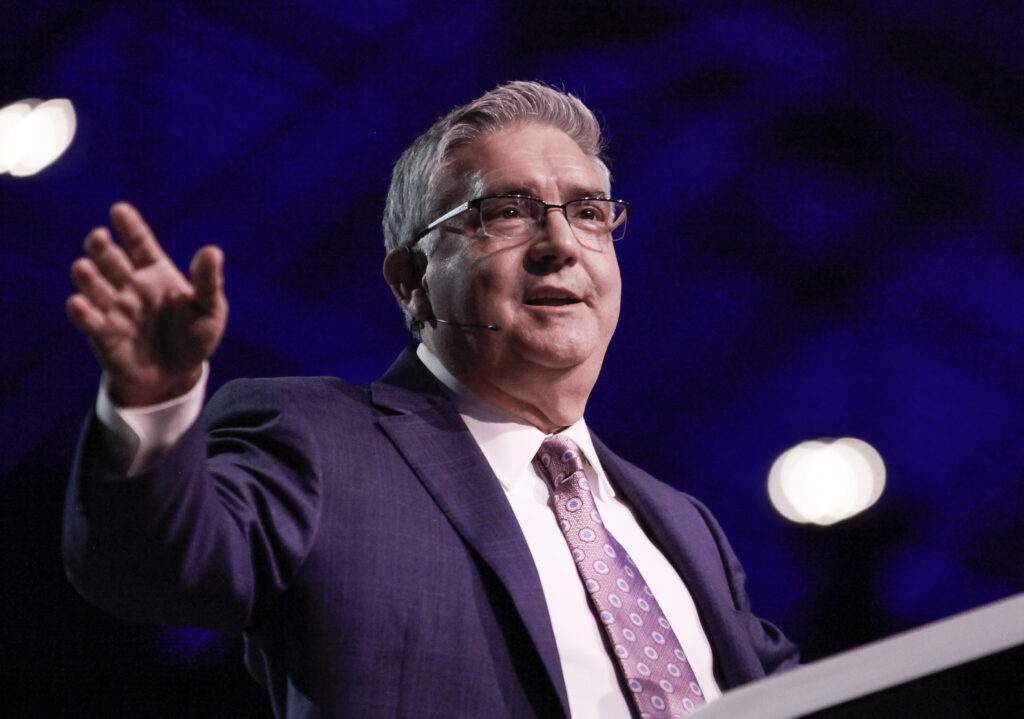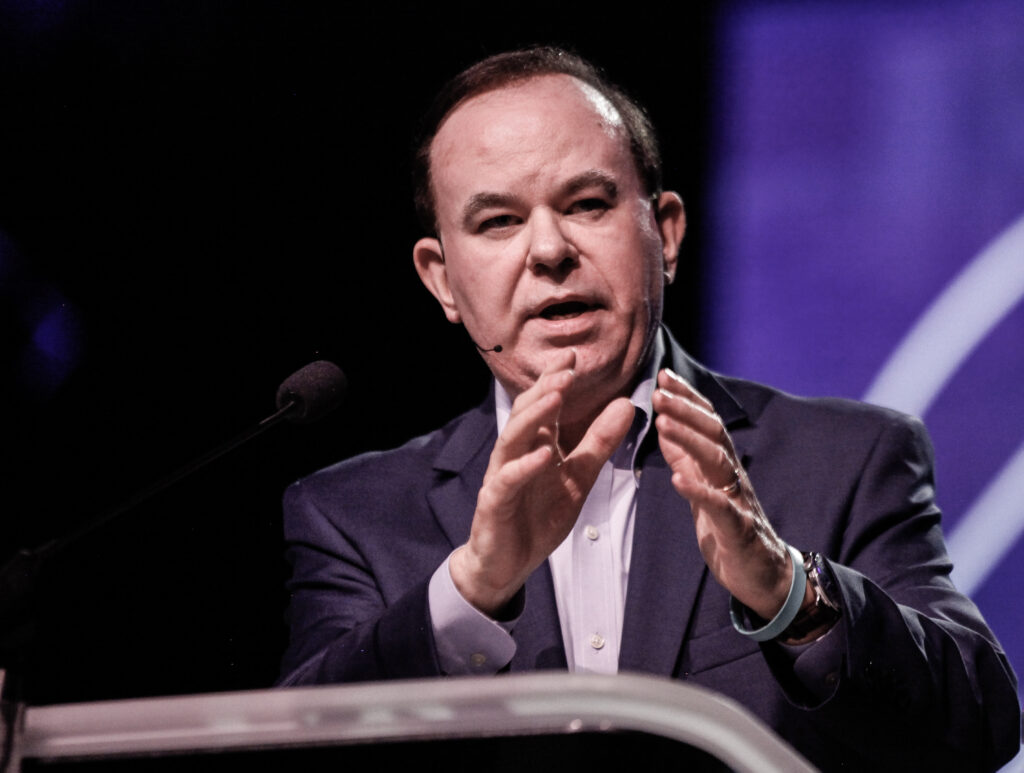

NEW ORLEANS (BP) — The world’s standards of success are no way for a pastor to measure his ministry, according to the opening session of the 2023 SBC Pastors’ Conference. Instead, he must cultivate a countercultural Kingdom character.
Preachers drew those lessons from the Beatitudes of Matthew 5, the sermon texts for this year’s Pastors’ Conference in advance of the SBC Annual Meeting at the New Orleans Ernest N. Morial Convention Center. The conference theme is “Beatitudes of a Pastor: Character Matters in Ministry.”
Preaching professor David Allen and evangelist Phil Waldrep delivered messages in the June 11 session, along with brief pastoral talks on the Fruit of the Spirit by Jarrett Stephens, pastor of Champion Forest Baptist Church in Houston, and Roc Collins, director of strategic objectives with the Tennessee Baptist Mission Board.
David Allen

A humble pastor experiences God’s favor now and an eternal reward when Jesus returns, said Allen, dean of the Adrian Rogers Center for Preaching at Mid-America Baptist Theological Seminary in Memphis, Tenn.
“If you’re not willing to preach in the basement, you have no business preaching in the bay window,” he said, preaching from Matthew 5:3. A pastor “can’t reflect God’s light and seek the limelight. It’s not possible to do both at the same time.”
The first Beatitude promises blessing to the “poor in spirit”—those who are humble and place themselves in God’s hands, realizing no earthly help is sufficient, Allen said. That’s different from self-deprecation or poor self-image. Godly humility is required for salvation and for living the Christian life.
“What do you have, when it comes to God, to be proud about anyway? You don’t have anything,” he said.
Humility is cultivated by listening to Jesus’ Word and demonstrated in service, Allen said. The reward for humility is admission to God’s eternal kingdom.
Allen closed his message by playing an audio excerpt from a sermon by late pastor and SBC president Adrian Rogers, in which Rogers described his experience of lying prostrate before God on the ground and digging a hole in the dirt for his nose so he could get even lower as he expressed his desire to be used by the Lord.
“We could use a few more Adrian Rogers in our convention,” Allen said to applause, “and we could use a hole for our nose. Matthew 5:3 is the hole for your nose” and “the crown for your head.”
Phil Waldrep
Waldrep, an author and president of the Phil Waldrep Evangelistic Association in Decatur, Ala., preached on Matthew 5:4, “Blessed are those who mourn, for they shall be comforted.”

Mourning is different from grieving, Waldrep said. Grieving is how a person feels when he has lost or experienced something he cannot change while mourning is an outward expression of sorrow.
“Unlike celebrating, mourning doesn’t run on adrenaline, and everything in our flesh wants to run from mourning,” Waldrep said, adding that Ecclesiastes 7 says it is “better to go to the house of mourning than to the house of feasting.”
“If mourning is to be a part of my character, even though I can have a joy-filled Christian life, it means that I am to actively mourn in my life,” Waldrep said, noting the Bible records three times when Jesus wept.
“I’ve discovered that mourning like Jesus keeps people like me on mission,” Waldrep said.
In John 11, Jesus wept for an individual after Lazarus died.
“Jesus was weeping because he saw the consequences of sin,” Waldrep said, pointing to death.
In Luke 19, Jesus wept for a city when he rode into Jerusalem on a donkey. He was weeping, in part, because the religious leaders did not have His heart.
“Sometimes we get so close to the religious work that our hearts can be far from the heart of Jesus and we don’t mourn what Jesus mourns,” Waldrep said.
Hebrews 5 refers to Jesus offering up prayers and supplications “with loud cries and tears,” presumably in the garden before His death, Waldrep said. He was weeping for the world.
“Jesus really wept because of the condition of souls. Jesus was broken for the lostness of our world,” Waldrep said.
















